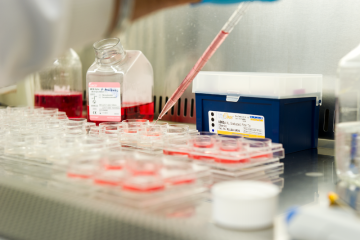Project grant
Replacement of the mouse bioassay: Development of SPE and LC-MS for detection of paralytic shellfish poisoning toxins

At a glance
Completed
Award date
February 2006 - July 2007
Grant amount
£127,515
Principal investigator
Dr Elizabeth Turrell
Co-investigator(s)
- Mr Jean-Pierre Lacaze
- Mrs Lesley Stobo
Institute
Marine Scotland Science
R
- Replacement
